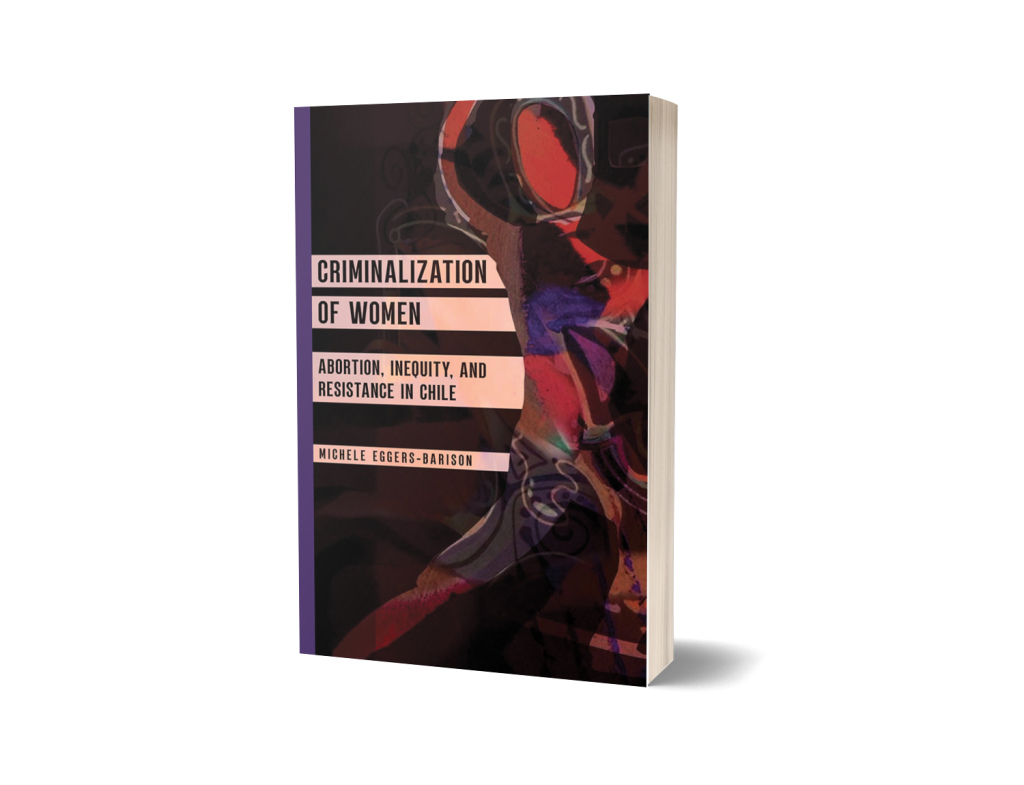Michele Eggers-Barison, author of Criminalization of Women: Abortion, Inequity, and Resistance in Chile, answers questions about her new book.
Q: Why did you decide to write this book?
This work originated from a short experimental documentary film, I Choose Me, which I produced and directed. The film was inspired by two converging phenomena at the time. First, in 2006, South Dakota enacted a law making abortion a felony, except in cases to save a woman’s life. Second, the ongoing impact of the War on Drugs contributed to the high rates of incarcerated women.
During the filming of I Choose Me, I interviewed numerous women from criminal justice, reproductive health, and feminist organizations who could speak to the potential consequences of South Dakota’s newly enacted law for women most at risk of incarceration. Among them was Dr. Rebecca Gomperts of Women on Waves in the Netherlands, who shed light on the global trends in criminalizing women for terminating pregnancies—including in Chile, where my family is from. This insight inspired a journey and commitment to expose the inequities in abortion policies and their impact on women subjected to public surveillance and state-sanctioned violence.
My hope is that this book serves as a platform for bearing witness to and providing a collective and political space of resistance for the lived experience of women and others who shed light on and are impacted by the multiple harms within clandestine spaces of illegality.
Q: What is the most interesting discovery you made while researching and writing your book?
- That restrictive reproductive health policies construct criminals
- That criminalizing women for abortion forces women into unsafe spaces and puts their lives at risk, but does not reduce abortion
- That the creation of clandestine spaces as a consequence of issues or people being criminalized is an act of state-sanctioned violence
- That we need a multidimensional framework to deconstruct and dismantle systems of inequity
- That centering women’s voice in their own experience is critical as a social justice approach to knowledge production
Q: What myths do you hope your book will dispel or what do you hope your book will help readers unlearn?
- That women and pregnant people are not bad or wrong for having an abortion. In the context of gender, racial, and class inequity (among others), people do not always have a choice.
- That abortion does not go away when laws/policies restrict access or ability to have an abortion, only puts people’s health and lives at risk (major human rights issue).
- That restrictive reproductive health laws/policies do not impact people equally… women and
others who have been systemically marginalized are most impacted (human rights violation)
Q: Which part of the publishing process did you find the most interesting?
- The editing support and process of indexing
- Coming up with the title and book cover, the creative aspects
Q: What is your advice to scholars/authors who want to take on a similar project?
- Stay in your heart space
- Check your privilege
- Remember your positionality (even international positionality)
- Bring your research back to the people who shared their stories (to counter extracting information for your own gain)
Q: What do you like to read/watch/or listen to for fun?
- Wandering in the wilderness, sola
- Playing the guitar
- Being in community
- Listening to live music
Michele Eggers-Barison is an associate professor in the School of Social Work at California State University, Chico.

